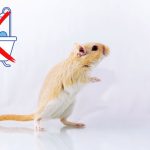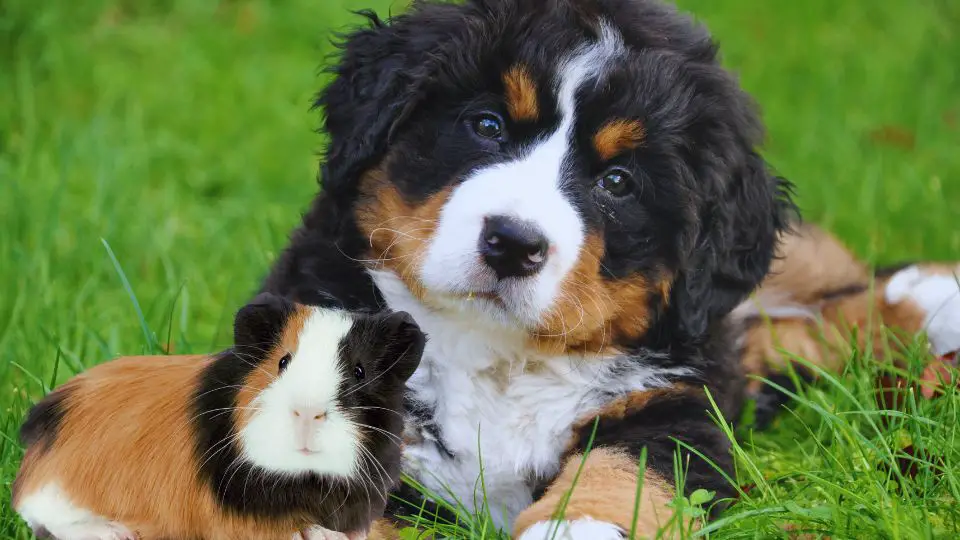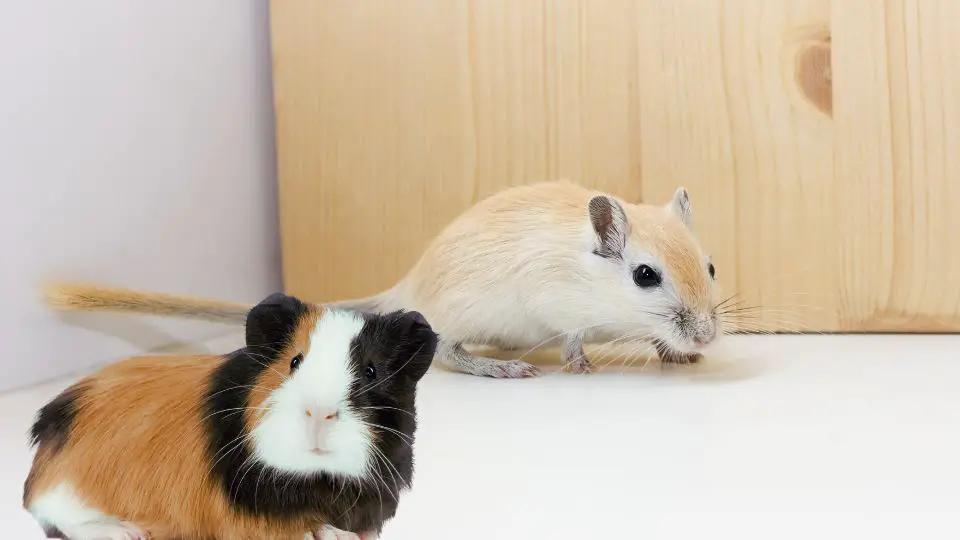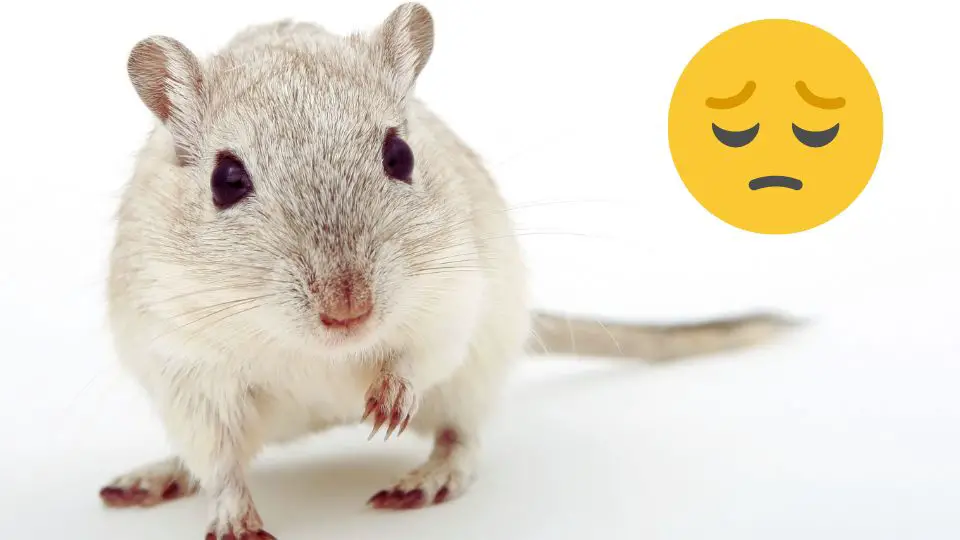If you’ve noticed that your gerbil is wobbling or having difficulty maintaining balance, it’s natural to be concerned about their well-being.
Wobbling in gerbils can be a sign of various underlying factors, including age-related changes, injury, or neurological issues.
Understanding the possible reasons behind this behavior can help you provide the appropriate care and support for your gerbil.
Potential Reasons for Wobbling
Gerbils are usually agile and coordinated creatures, so it can be concerning to witness them wobbling or having difficulty maintaining balance. Understanding the potential reasons behind this behavior is crucial for providing appropriate care and seeking veterinary assistance when needed. Here are some common factors that may contribute to gerbil wobbling:
As gerbils age, they may experience a natural decline in their physical abilities. This can affect their balance and coordination, leading to wobbling or unsteady movements. Age-related health conditions, such as arthritis or degenerative diseases, can also contribute to balance problems in gerbils.
Injury or trauma
Gerbils are active and curious creatures, making them prone to accidental injuries or trauma. Falls from heights, rough handling, or collisions with objects can result in injuries that may cause wobbling. It’s important to provide a safe and secure environment for gerbils to minimize the risk of accidents.
Neurological issues
Certain neurological conditions can affect a gerbil’s balance and coordination. These conditions may be congenital or acquired, and they can interfere with the proper functioning of the nervous system. Common neurological disorders in gerbils include vestibular disease, which affects the inner ear and balance, and tumors that can impact neurological function.
Inner ear infections
Inner ear infections can disrupt the delicate balance mechanisms in a gerbil’s inner ear, leading to wobbling and loss of balance. These infections are often caused by bacteria or yeast and require veterinary diagnosis and treatment. Prompt medical attention is essential to prevent the infection from spreading and causing further complications.
If you notice your gerbil wobbling, it’s important to observe their behavior closely and consult a veterinarian. They will be able to conduct a thorough examination, assess the potential underlying causes, and recommend appropriate treatment. Remember, early intervention is key to improving your gerbil’s condition and ensuring their overall well-being.
Observing and Assessing the Gerbil
As a responsible gerbil owner, it’s essential to closely observe and assess your pet’s behavior and overall health. By staying vigilant and attentive to any changes or abnormalities, you can promptly identify potential issues and seek appropriate veterinary advice. Here are some key steps to help you observe and assess your gerbil:
Closely monitor behavior and symptoms
Pay attention to your gerbil’s daily activities and habits. Observe their movement, appetite, energy levels, grooming behavior, and social interactions. Be alert for any noticeable changes or signs of distress, such as wobbling, loss of appetite, lethargy, or unusual behaviors.
Keep a record of observations
Maintaining a record of your gerbil’s behavior and symptoms can provide valuable information when seeking veterinary advice. Note down any unusual or concerning observations, including the frequency, duration, and progression of symptoms. This record will help you provide detailed information to your veterinarian, aiding in the diagnosis and treatment process.
Seek professional veterinary advice
If you notice any significant or persistent changes in your gerbil’s behavior or health, it is crucial to consult a veterinarian with experience in small animal care. A veterinarian will conduct a thorough examination, which may include physical assessments, diagnostic tests, and a review of your gerbil’s medical history. Based on their expertise, they can provide an accurate diagnosis and recommend appropriate treatment options.
Remember, as a gerbil owner, you play a vital role in your pet’s well-being. Your observations and record-keeping can provide valuable insights to your veterinarian, enabling them to make informed decisions regarding your gerbil’s health. By seeking professional advice when necessary, you can ensure the early detection and management of any potential health concerns, increasing the chances of a positive outcome for your furry friend.
Providing Support and Care
Here are some measures you can take to provide support and care for your wobbling gerbil:
- Ensure a safe and accessible environment: Make sure the gerbil’s enclosure is secure and free from hazards that may exacerbate their wobbling or cause injuries. Remove any sharp objects, ensure the bedding is appropriate and comfortable, and provide ample hiding spots and soft surfaces for rest. Additionally, consider lowering the height of their food and water dishes to make them easily accessible.
- Provide assistance with mobility: As a gerbil owner, you can offer support and assistance to help your wobbling gerbil navigate their environment. Place ramps or gently sloping surfaces to help them reach different levels in their enclosure. You can also provide low platforms or sturdy toys for them to rest on when they need a break from movement.
- Ensure a balanced diet: A nutritious and balanced diet is essential for the overall health and well-being of a gerbil, including those experiencing wobbling. Consult with a veterinarian experienced in small animal care to ensure your gerbil’s diet meets their specific nutritional needs. Provide a variety of fresh vegetables, high-quality gerbil pellets, and occasional treats to maintain their health.
- Offer gentle handling and interaction: When interacting with a wobbling gerbil, it’s crucial to be patient, gentle, and understanding. Avoid sudden movements or loud noises that may startle or distress them. Provide them with regular, calm handling sessions to help build trust and strengthen your bond. However, always be mindful of their comfort level and never force interaction if they seem stressed or uncomfortable.
FAQ
Why is my gerbil having trouble walking?
Possible causes of a gerbil having trouble walking can include injury, illness, or age-related issues. It’s essential to observe your gerbil closely for any additional symptoms and consult with a veterinarian for a proper diagnosis and treatment.
Why is my gerbil shaking?
Shaking in gerbils can be a sign of various underlying issues, such as stress, fear, illness, or even neurological conditions. It’s important to closely monitor your gerbil’s behavior and seek veterinary attention if the shaking persists or is accompanied by other concerning symptoms.
Why is my gerbil shaking and not moving?
If your gerbil is shaking and not moving, it could indicate a severe health issue or distress. Immediate veterinary attention is necessary to determine the cause and provide appropriate treatment. Delaying medical intervention could worsen the condition or put your gerbil’s life at risk.
Why is my gerbil not using its back legs?
The inability to use the back legs in a gerbil may be due to injury, nerve damage, spinal issues, or underlying health conditions. It’s crucial to seek veterinary care promptly to identify the cause and determine the best course of action to support your gerbil’s mobility and well-being.
Conclusion
In conclusion, if your gerbil is wobbling, it’s crucial to closely observe their behavior and seek professional veterinary advice. Wobbling can be a symptom of various underlying factors, such as age-related changes, injury, or neurological issues.
A thorough examination by a veterinarian will help identify the cause and determine the best course of action to support your gerbil’s health and well-being. Remember to create a safe and comfortable environment for your gerbil and provide them with the necessary care and support during this time.
By addressing their needs and seeking proper veterinary care, you can help your gerbil navigate through any challenges and ensure their quality of life.







